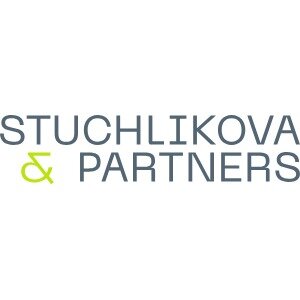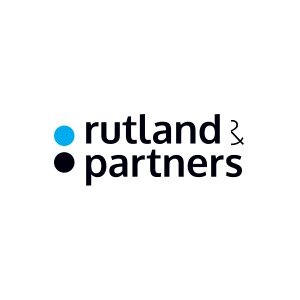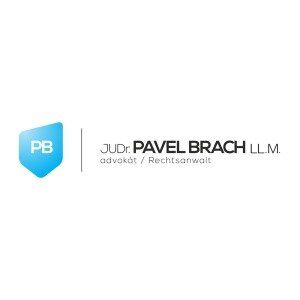Best Intellectual Property Lawyers in Czechia
Share your needs with us, get contacted by law firms.
Free. Takes 2 min.
Or refine your search by selecting a city:
List of the best lawyers in Czechia
About Intellectual Property Law in Czechia:
Intellectual Property (IP) refers to creations of the mind, such as inventions, literary and artistic works, designs, and symbols, names, and images used in commerce. In Czechia, IP is protected by various laws to encourage innovation and creativity. It covers patents, trademarks, copyrights, and other forms of intangible assets.
Why You May Need a Lawyer:
You may need a lawyer in Czechia for Intellectual Property matters to help you navigate the complex legal requirements, protect your intellectual assets, enforce your rights, and defend against infringement claims. A lawyer can assist in registering trademarks, patents, copyrights, drafting licensing agreements, and representing you in court if necessary.
Local Laws Overview:
Czechia follows the European Union's intellectual property laws, which include the Patent Law, Trademark Law, Copyright Law, and Design Law. The Industrial Property Office of the Czech Republic is the national authority responsible for registering IP rights. It's important to comply with these laws to avoid legal disputes.
Frequently Asked Questions:
1. What is the difference between a trademark and a patent?
A trademark protects a brand's identity (logo, name), while a patent protects inventions or processes.
2. How long does trademark registration last in Czechia?
A trademark registration is valid for 10 years in Czechia and can be renewed indefinitely.
3. Can I use copyrighted material without permission for educational purposes?
Under certain conditions, limited use of copyrighted material for educational purposes may be allowed.
4. What is considered fair use under Czechian copyright law?
Fair use allows for limited use of copyrighted material without permission for purposes such as criticism, comment, news reporting, teaching, scholarship, or research.
5. How do I prove someone has infringed my IP rights?
You need evidence of ownership of the IP, proof of the infringement, and documentation of your efforts to protect your rights.
6. Can I register a design in Czechia if it's already been disclosed to the public?
In some cases, you may still be able to register a design if it meets certain criteria, even if it has been disclosed to the public.
7. What should I do if someone is using my trademark without permission?
You should seek legal advice to enforce your rights, possibly through cease-and-desist letters, negotiations, or legal action.
8. Can I license my patent to multiple parties in Czechia?
Yes, you can license a patent to multiple parties in Czechia, allowing each licensee to use the patented invention according to the terms of the agreement.
9. Do I need to register a copyright in Czechia for my work to be protected?
No, copyright protection is automatic in Czechia from the moment of creation, but registration can provide additional benefits, such as evidence in legal disputes.
10. How long does a patent last in Czechia?
A patent in Czechia is valid for 20 years from the date of filing, provided that annuity fees are paid.
Additional Resources:
For more information on Intellectual Property in Czechia, you can visit the Industrial Property Office of the Czech Republic (Úřad průmyslového vlastnictví) website at www.upv.cz. They provide guidance on IP rights, application procedures, and legal resources.
Next Steps:
If you require legal assistance in Intellectual Property matters in Czechia, it is recommended to consult with a specialized IP lawyer who can guide you through the legal process, protect your rights, and help you achieve your goals effectively.
Lawzana helps you find the best lawyers and law firms in Czechia through a curated and pre-screened list of qualified legal professionals. Our platform offers rankings and detailed profiles of attorneys and law firms, allowing you to compare based on practice areas, including Intellectual Property, experience, and client feedback.
Each profile includes a description of the firm's areas of practice, client reviews, team members and partners, year of establishment, spoken languages, office locations, contact information, social media presence, and any published articles or resources. Most firms on our platform speak English and are experienced in both local and international legal matters.
Get a quote from top-rated law firms in Czechia — quickly, securely, and without unnecessary hassle.
Disclaimer:
The information provided on this page is for general informational purposes only and does not constitute legal advice. While we strive to ensure the accuracy and relevance of the content, legal information may change over time, and interpretations of the law can vary. You should always consult with a qualified legal professional for advice specific to your situation.
We disclaim all liability for actions taken or not taken based on the content of this page. If you believe any information is incorrect or outdated, please contact us, and we will review and update it where appropriate.
Browse intellectual property law firms by service in Czechia
Czechia Attorneys in related practice areas.
Browse intellectual property law firms by city in Czechia
Refine your search by selecting a city.










